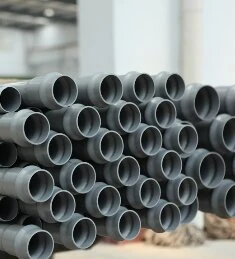Dec . 30, 2024 00:44 Back to list
Understanding PPR Cold Water Pipe Applications and Benefits for Plumbing Systems
The Role of PPR in Cold Water Piping Systems
Polypropylene Random Copolymer (PPR) has emerged as a premier material for cold water piping systems across various applications. In recent years, its usage has expanded significantly due to its remarkable properties, which not only ensure durability and reliability but also promote efficiency in water transport. This article will explore the advantages of PPR pipes, their applications, and why they are increasingly preferred over traditional materials like metal and PVC.
Advantages of PPR Pipes
One of the most compelling advantages of PPR pipes in cold water systems is their resistance to corrosion and scaling. Unlike metal pipes, which can rust over time or corrode from chemical reactions, PPR pipes maintain their integrity and performance throughout their lifespan. This characteristic significantly reduces maintenance costs and extends the service life of piping systems.
Furthermore, PPR pipes offer excellent thermal insulation. Their low thermal conductivity means that they help maintain the temperature of cold water, reducing energy consumption for cooling systems. This insulation property also prevents condensation on the outer surface of the pipes, minimizing the risk of water damage to surrounding structures.
Another noteworthy benefit is the ease of installation. PPR pipes are lightweight compared to metal options, which makes transportation and handling much simpler. Additionally, they can be easily connected using heat fusion welding, providing a seamless and leak-proof joint that enhances overall system reliability.
Environmental Impact
ppr cold water pipe

In today's world, environmental considerations are paramount. PPR pipes are not just functional but also environmentally friendly. They are manufactured from recyclable materials, which reduces waste and supports sustainability efforts. Moreover, the absence of harmful chemicals during the production process means that these pipes do not contribute to environmental pollution, aligning with global initiatives promoting greener construction practices.
Applications of PPR Pipes
PPR pipes are highly versatile and can be used in a variety of cold water applications. They are ideal for residential plumbing systems, ensuring safe and efficient water delivery to homes. In commercial spaces, their application extends to HVAC systems, where they facilitate efficient water management.
Furthermore, PPR pipes find extensive use in agricultural irrigation systems, allowing for effective water distribution in farming operations. Their robust performance also makes them suitable for industrial applications, where durable and reliable piping is crucial.
Conclusion
In conclusion, PPR pipes represent a modern solution for cold water piping systems, offering numerous advantages over traditional materials. Their durability, corrosion resistance, and thermal insulation make them an ideal choice for both residential and commercial applications. As the industry continues to focus on sustainability, the eco-friendly attributes of PPR further enhance their appeal.
As technology progresses and construction methods evolve, the demand for efficient and reliable piping materials will only increase. PPR pipes are not only meeting this demand but are setting new standards in the plumbing and piping industry. With their myriad benefits, it is no surprise that PPR has become a preferred option for cold water piping systems around the world, paving the way for innovative water management solutions in the years to come.
-
Durable PP Rigid Sheet: Lightweight, Chemical Resistant Solutions
NewsAug.21,2025
-
PVC Grey Sheet for Extraction: Chemical Resistant & Durable
NewsAug.19,2025
-
Durable PVC Pipe Fittings for Plumbing & Irrigation Needs
NewsAug.18,2025
-
HDPE Steel Belt Reinforced Spiral Corrugated Pipe | High Strength
NewsAug.17,2025
-
HDPE Pipe Fittings: Durable, Leak-Proof Solutions
NewsAug.16,2025
-
Premium CPVC Sheet: High-Temp & Chemical Resistant Solutions
NewsAug.15,2025

